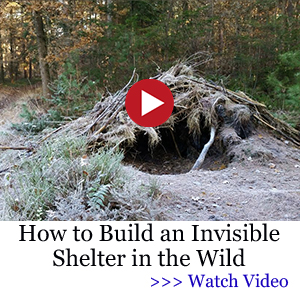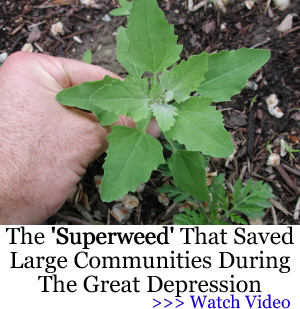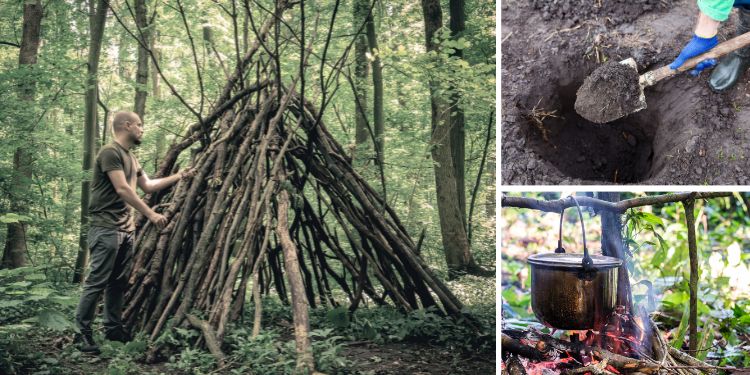In a world where the systems we have come to depend on collapses, survival hinges on a set of skills most in society have never learned.
These skills are about more than just getting by—they are about ensuring you and your loved ones can navigate the chaos and come out on the other side.
In this article we explore some of the skills you might need after a sudden collapse.
Mastering Self Defense and Home Defense
When society collapses, all rules will seemingly go out the window. This fact makes the need to defend yourself become a daily reality. It is not just about having a firearm; it is about truly knowing how to use it effectively and safely.
Firearms training should include marksmanship, understanding the mechanics of your weapon, and practicing in different conditions. But guns should not be your only line of defense. Hand-to-hand combat skills such as those those found in Krav Maga or Brazilian Jiu-Jitsu, can give you a leg up when it comes to close-quarter combat where a weapon might not be the most feasible option.
After working through The Special Forces Home Defense Academy, I’ve come to realize that defending yourself goes far beyond just the basics. The academy focuses on protecting people from the real threats out there—thugs, burglars, and looters who prey on the everyday person.
What struck me was that the academy, founded by a Special Forces veteran, isn’t just about learning to fire a weapon. You’ll learn how to make your home a fortress, deter criminals, and even use simple tools like zip ties to make entry points nearly impossible to breach. There’s something empowering about being able to say you’re equipped with skills that could make a criminal think twice before targeting you or your property.
Equally important is developing a sharp sense of situational awareness. This means always being aware of your surroundings, identifying potential threats before they materialize, and knowing how to de-escalate situations when possible. For example, learning to read body language and trust your gut feelings—if something feels off, it probably is—are skills that go a long way in ensuring your safety and the safety of your family.
 Extra Tip: Consider training in defensive driving as well. If roads are still passable, being able to escape a dangerous situation in a vehicle can be just as critical as knowing how to fight.
Extra Tip: Consider training in defensive driving as well. If roads are still passable, being able to escape a dangerous situation in a vehicle can be just as critical as knowing how to fight.
Master driving in different weather conditions and in different types of vehicles.
Securing and Purifying Water
Water is your most basic need. Following a collapse of society, finding and securing clean water will be a one of the biggest challenges you face, and one that will be faced every day. The first step is understanding what the natural water sources around you are, such as rivers, lakes, and even rainwater. But just because you find water does not mean it is safe to drink.
If you want to make sure the water you’re using for you and your family is safe to drink, it’s best to filter it yourself. You can learn here a cheap and easy way to create an ingenious rainwater harvesting and purification system capable of storing 165 gallons of water.
Extra Tip: Learn about solar distillation, which uses the heat from the sun to distill water. This method can be invaluable in a bug out situation. While it takes time, it can provide safe, reliable drinking water.
Procuring and Preserving Food
In a post-collapse world, it will not take long for the shelves at your local grocery store to go bear. And, if you are able to find food in such a location, chances are you will face opposition and have to rely on the first skill we talked about.
If you do not know how to already, you will need to learn how to hunt, fish, and forage to sustain yourself. Start by learning the basics of trapping and snaring small game, such as squirrels, rabbits, and birds.

Fishing, whether with a rod and reel or with makeshift traps and nets, can be another critical skill, especially if you have access to a body of water.
Hunting larger game like deer can also provide a significant food source, but this requires knowledge of tracking and precise shooting.
Related: The Best Way to Train Your Dog For Hunting And Security
The first time you skin and butcher these animals, you may waste a lot of meat, but over time you will learn how to properly skin and butcher an animal.
Foraging for wild edibles is another skill that can sustain you when other food sources are scarce. Take the time now to identify local plants that are safe to eat, and which ones are poisonous. This knowledge could be live saving in a sudden collapse/SHTF scenario.
Finding food is only half the battle; you need to know how to make it last. Canning, smoking, and drying are some of the basic techniques for storing food without refrigeration. For instance, learn how to make jerky or pemmican, both of which can last for months if prepared and stored correctly.
Extra Tip: Consider growing your own food if you have the space and time. Learning the basics of gardening can provide a steady food source that can help sustain you while trying to locate other sources of food.
First Aid and Medical Knowledge

While hospitals may still be in operation during a collapse of society, you can almost be guaranteed that they will be overwhelmed and understaffed.
That is why it is important to have some basic first aid skills to help keep you and your family alive.
Start with first aid—learn how to properly clean and bandage wounds to prevent infection, treat burns, and manage fractures.
You can also start to stockpile essential medical supplies. However, you should also develop knowledge on natural remedies. For example, certain plants like yarrow can help stop bleeding, while others like echinacea can boost the immune system.
Unfortunately, yarrow can be easily mistaken for poison hemlock. That is why I prefer to grow my own yarrow and echinacea using high-quality, NON-GMO seeds packaged in US. They don’t restock them that often so I recommend you secure your own pack from here.
Bartering and Community Building
After a societal collapse, traditional economic systems will be obsolete, and bartering will likely become the primary means of exchange. The skills you’ve developed—whether in gardening, medical care, or mechanical repair—will be valuable assets in this new world.
Even if you manage to identify a few individuals you can somewhat trust, be cautious about disclosing the full extent of your resources and knowledge. It’s wise to maintain a degree of secrecy about what you have and can do.
Extra Tip: Aim to establish a reputation as a dependable and discrete person within your trusted circle. This approach will encourage others to engage with you while preserving your security and keeping your valuable resources safe.
Building and Maintaining Shelter
Having shelter during any survival situation can mean the difference between life and death, but especially in a breakdown of society. If you are staying put and bugging in, fortify your home by securing doors and windows, setting up barriers, and establishing a safe room. This room should be stocked with essentials and reinforced against intruders.
 If you need to build a shelter in the wild, basic construction skills will be your best friend. Learn here how to build a lean-to, debris hut, or even a more permanent log cabin. Understanding insulation is crucial; keeping warm in chilly weather without electricity can be a challenge, but using natural materials like leaves, moss, or even snow can provide effective insulation.
If you need to build a shelter in the wild, basic construction skills will be your best friend. Learn here how to build a lean-to, debris hut, or even a more permanent log cabin. Understanding insulation is crucial; keeping warm in chilly weather without electricity can be a challenge, but using natural materials like leaves, moss, or even snow can provide effective insulation.
Extra Tip: Learn to make and use tools that will help you build or repair shelter.
Mental Resilience
Finally, surviving the collapse of society is not just about physical skills—it is about mental toughness. The ability to stay calm under pressure, make clear decisions in the face of danger, and keep your morale up will be key to long-term survival. This means preparing your mind as well as your body.
Meditation, breathing exercises, and mental conditioning can help you stay focused and reduce stress when society falls. It is also important to find small moments of joy or normalcy, even in the worst situations, to keep your spirits up.
Extra Tip: Develop a routine, even in the chaos. Having a daily schedule can provide a sense of normalcy and control, helping you maintain mental stability in a world that feels out of control.
By mastering these skills, you will not only survive but be well-positioned to thrive in a post-collapse world. These are not just theoretical ideas; they are practical, actionable steps you can take to prepare for whatever the future holds. And what is even better is that anyone can develop these skills and survive when the world around us is falling apart.
You may also like:
 These 10 Types of People Will Die First When SHTF
These 10 Types of People Will Die First When SHTF
Why You Should Put a Coin in a Cup of Frozen Water in Your Freezer
The 8 Warning Signs Before a Russian Nuclear Strike
Read This Before You Store Anything in a 5-Gallon Bucket
Places to Avoid: Where Looters Will Strike First When SHTF
Read the full article here
